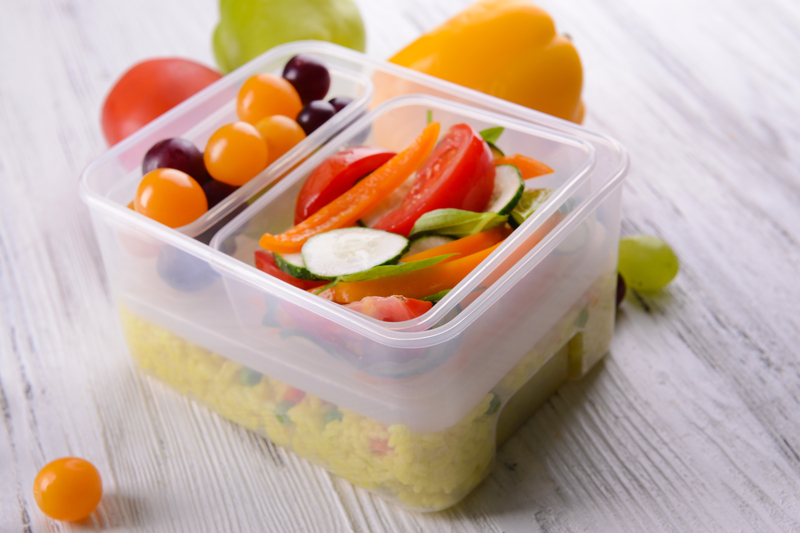The Transformative Power of De-cluttering on Stress Relief
In our fast-paced, modern world, stress has become a common companion. Whether it's the demands of work, family obligations, or daily routines, many of us seek strategies to manage and reduce stress. A surprisingly effective yet often overlooked solution is the art of de-cluttering. This comprehensive guide delves into the transformative power of de-cluttering on stress relief, offering scientific insights, practical tips, and motivational advice to help you reclaim both your space and your peace of mind.

Understanding the Link: Clutter and Mental Wellbeing
Before exploring how de-cluttering relieves stress, it's essential to understand the psychological impact clutter has on our mental health. According to several research studies, physical clutter can overwhelm the brain, leading to increased anxiety, reduced focus, and feelings of powerlessness. Messy surroundings often signal unfinished tasks and a lack of control, further intensifying stress levels and preventing true relaxation within one's home or workspace.
Key Psychological Effects of Clutter
- Distraction: Cluttered environments can overstimulate the mind and hinder concentration.
- Procrastination: Overwhelming messes may lead to avoidance behaviors, perpetuating stress.
- Reduced Productivity: A disorganized space can directly impact one's ability to perform efficiently.
- Negative Emotions: Living or working amidst chaos often results in frustration, embarrassment, or shame.
- Poor Sleep: Stress caused by clutter can interfere with restful sleep, compounding anxiety and fatigue.
Understanding these effects paves the way for appreciating the transformative benefits of de-cluttering on stress management.
Why De-cluttering Offers Profound Stress Relief
When you de-clutter, you do much more than organize your space; you restore a sense of control, clear your mind, and invite positive energy. Let's explore why de-cluttering is so powerful for stress relief:
1. Establishes a Calming Environment
A tidy space naturally encourages relaxation. When your surroundings are orderly, your mind can switch off from unnecessary sensory input and focus on rest and renewal. The act of de-cluttering living spaces helps create an environment conducive to tranquility and emotional well-being.
2. Boosts Productivity and Motivation
Clearing away clutter leads to increased motivation. When you can easily locate items, you waste less time searching for things, allowing you to channel your energy into meaningful activities. This, in turn, reduces procrastination -- a significant source of daily stress.
3. Enhances Focus and Creativity
A minimalist, clutter-free environment is scientifically linked to improved concentration and creative thinking. By removing distractions, your mind is free to innovate, solve problems, and complete tasks with greater ease, thereby reducing stress and supporting emotional balance.
4. Promotes Better Sleep
Your surroundings directly impact how restful your sleep is. Studies show that individuals sleeping in tidy bedrooms experience less stress and enjoy deeper, uninterrupted rest. De-cluttering your bedroom is a simple strategy to enhance sleep quality and help your body manage stress more effectively.
5. Cultivates Mindfulness and Letting Go
Letting go of physical possessions encourages us to practice mindfulness, living in the present and focusing on what truly matters. This process helps release attachments to the past and fosters a sense of contentment -- both of which are crucial for long-term stress management.
Scientific Evidence Supporting De-cluttering for Stress Relief
The relationship between clutter and psychological stress isn't just anecdotal. Scientific studies have shown direct links between organized environments and reduced cortisol levels -- the hormone associated with stress. For instance, a study published in the "Personality and Social Psychology Bulletin" found that women who described their homes as "cluttered" or "unfinished" experienced greater stress and fatigue throughout the day compared to those with more restful, streamlined spaces. These findings affirm the stress-relieving impact of de-cluttering.
How to Start De-cluttering for Maximum Stress Relief
While the idea of de-cluttering can feel intimidating, breaking the process down into manageable steps makes it achievable and even enjoyable. Here's how to get started:
Step-by-Step Guide to Stress-Reducing De-cluttering
- Identify Problem Areas: Walk through your home or workspace and make a note of the areas that cause you the most stress. Focus on high-traffic zones first, like your kitchen, living room, or desk.
- Set Achievable Goals: Rather than tackling your entire home in one day, set small, realistic goals (e.g., de-clutter one bookshelf or one kitchen drawer).
- Sort and Categorize: Use labeled boxes or bags for items to keep, donate, recycle, or discard. Be honest about what you truly need or love.
- Develop an Organizing System: Once you've narrowed down your belongings, assign every item a designated place. Use containers, labels, or shelves to maintain order.
- Establish Daily Routines: Dedicate 10-15 minutes each day to tidying up. Consistency makes maintaining a clutter-free space easier and ensures ongoing stress relief.
Pro Tip: Embrace the "One In, One Out" Rule
For every new item you bring into your home, commit to removing one. This simple rule prevents future accumulation and helps maintain lasting organization and peace of mind.
The Emotional Journey: Letting Go to Relieve Stress
It's important to acknowledge that de-cluttering isn't just a physical act -- it's a deeply emotional journey. Objects often carry memories and emotional attachments, making it challenging to let go. However, by releasing physical clutter, you also begin to unburden yourself from emotional baggage. This transformative process can be liberating and serve as a crucial step toward lasting stress relief.
Consider asking yourself:
- Does this item add value or joy to my life?
- Am I holding onto it out of guilt or obligation?
- Would letting go of it free up valuable space, energy, or mental clarity?
Different De-cluttering Methods for Stress Relief
There's no one-size-fits-all approach to de-cluttering. Here are some popular de-cluttering strategies to suit different personalities and needs:
The KonMari Method
Made famous by Marie Kondo, the KonMari Method involves keeping only those items that "spark joy." This method encourages mindfulness and gratitude while streamlining your belongings. It's particularly effective for those seeking a holistic approach to de-cluttering for stress relief.
Minimalism
Adopting a minimalist lifestyle means intentionally choosing less and prioritizing quality over quantity. Minimalists report lower stress levels due to fewer possessions to maintain, making it easier to keep spaces clutter-free and inviting.
Room-by-Room Approach
If the thought of tackling your whole house is overwhelming, focus on one room at a time. Completing one room before moving on to the next can heighten your motivation and provide immediate, tangible results, helping to sustain the stress relief that comes with a decluttered environment.
The Long-Term Benefits of De-cluttering on Stress Levels
Beyond the immediate sense of relief and accomplishment, the act of consistently maintaining a clutter-free environment yields long-term advantages for mental and emotional health. These include:
- Ongoing reductions in daily stress due to improved organization and control.
- Greater self-esteem and confidence as you take proactive steps to care for yourself and your space.
- More time for loved ones and enjoyable activities, since less is spent cleaning or managing excess.
- Financial benefits from selling or donating unwanted items, or simply curbing unnecessary purchases.
- Improved physical health from enhanced air quality and fewer obstacles, creating a safer living environment.
De-cluttering and Stress Management: Real-Life Success Stories
Countless individuals testify to the transformative power of de-cluttering for stress relief. Here are a few inspiring examples:
- Samantha's Story: After years of struggling with anxiety, Samantha began to methodically de-clutter her apartment. The visible change in her environment paralleled a significant drop in her stress levels and improved her sleep.
- Michael's Journey: Overwhelmed by work and family life, Michael started small -- organizing his workspace. The shift not only made him more productive but also alleviated his chronic feelings of overwhelm.
- Lila's Experience: Downsizing her possessions gave Lila more physical and mental space, making her daily routines simpler and more enjoyable, and helping her discover new hobbies and relationships.

Practical Tips for Maintaining a De-cluttered, Stress-Free Space
- Regularly purge: Committing to a seasonal review of your belongings prevents clutter from creeping back in.
- Adopt mindful purchasing: Pause before acquiring new items -- ask yourself if you truly need them.
- Involve the whole family: Make de-cluttering a shared responsibility to foster teamwork and accountability.
- Designate "clutter zones": Keep baskets or bins in key areas for items that need sorting, then empty them weekly.
- Reward yourself: Celebrate your progress! Enjoy the stress relief and serenity that comes with each decluttered space.
Conclusion: Embrace a New Chapter of Calm
In conclusion, the transformative power of de-cluttering on stress relief cannot be overstated. By taking small, consistent steps to organize your home and mind, you reclaim control, foster positivity, and lay the foundation for a calmer, more fulfilled life. Whether you start with a single drawer or an entire room, every effort brings you closer to lasting stress management and inner peace.
Are you ready to experience the stress-relieving benefits of a decluttered life? Begin your journey today and discover the remarkable transformation that awaits you!